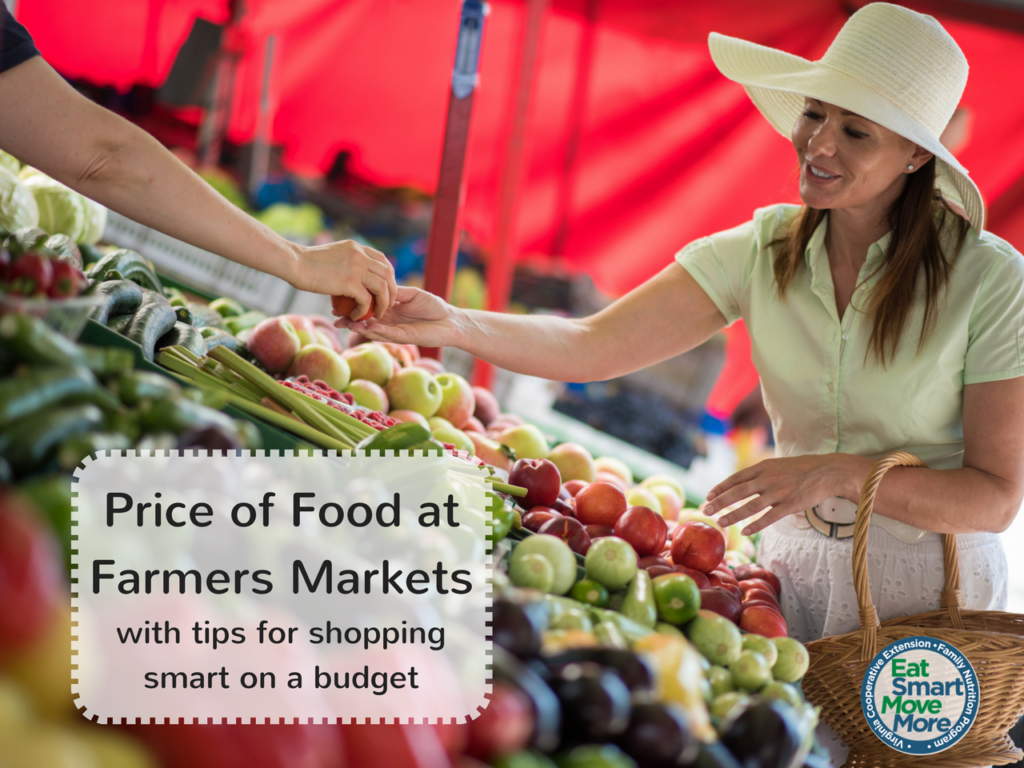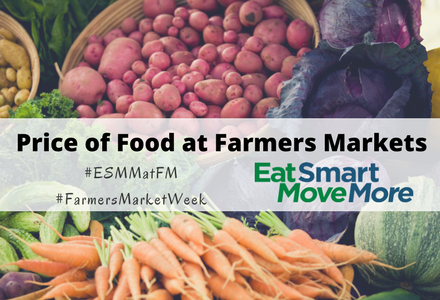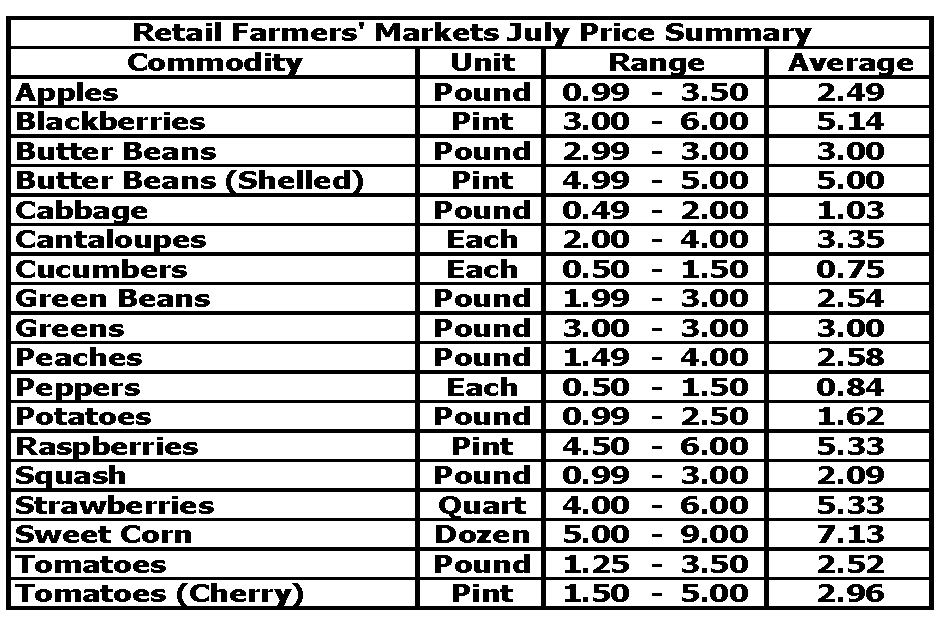Farmers markets offer a wide variety of fresh, local fruits, vegetables, eggs, meats, baked goods and more. The quality of produce is generally unbeatable, as most fruits and veggies are picked at the peak of ripeness just days or even hours before you buy them. And many farmers selling at the market follow organic practices. Animal farmers tend to have smaller operations and use smaller processing facilities. All of these factors add up to higher prices, right? You might be surprised.
Cost comparison of farmers market foods
Farmers markets certainly have a reputation for being expensive. But studies have done price comparisons between foods from farmers markets and other, more traditional retail outlets like grocery stores and convenience stores in North Carolina, Iowa, Nevada, and Vermont. They found that farmers markets tend to have comparable prices on many products, particularly when comparing organic produce. Conventionally grown items tended to be a little cheaper at the store, but several staples, like apples, potatoes, squash, leafy greens, tomatoes, and sweet corn were competitively priced at farmers markets.

Virginia Department of Agriculture and Consumer Services tracks the prices of different foods at farmers markets across the state (but doesn’t compare prices to other stores). The table of average prices statewide for foods sold at farmers markets last month is below. You can see that the price of apples, cucumbers, and bell peppers are pretty close to grocery store prices.
Shopping for less at farmers markets
To make it even more affordable to shop at farmers markets, try these tips and strategies.
- Take advantage of SNAP matching programs. Many markets offer matching funds for shoppers using SNAP benefits at the market. Look for the Virginia Fresh Match logo to see if your local market has a matching program. You decide how much of your SNAP funds to spend at the market, and the market will match you dollar for dollar (up to a certain limit in most cases), giving you double the buying power.
- Shop in season. It’s a matter of supply and demand. When produce is in season, there’s a lot of it, so the price goes down. As an added bonus, seasonal produce has many other benefits in addition to affordability.
- Stick to staples. As seen in the studies mentioned earlier, the basics tend to be the cheapest products at a farmers market. There are lots of unique or unusual items to be found at the market (purple potatoes, romanesco broccoli, or persimmons), but they usually come with a premium price tag. Feel free to try something new if it catches your eye, but spend most of your budget on lower-priced staples you can use in multiple meals.
- Look for deals on bulk quantities or imperfect produce. Ugly veggies are having a moment right now. Because they have imperfections, farmers sell them for a cheaper price than their well-shaped peers. In most instances, there’s nothing wrong with the ugly items and they taste just as good. You may also get a better deal when buying a large quantity than if you only buy a few items. It never hurts to ask, especially at the end of the day when the farmer may not want to pack up unsold items. This is when having a relationship with your farmer comes in handy!
Do you have any other strategies for shopping smart on a budget at the farmers market? Share them with us in the comments!


